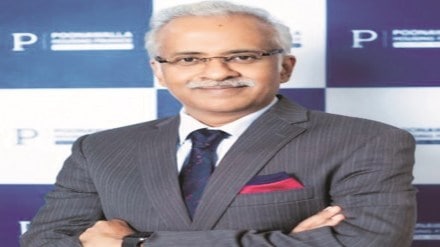The Cyrus Poonawalla Group last month completed sale of a controlling stake in its housing finance arm Poonawalla Housing Finance to an entity affiliated to private equity major TPG Global for Rs 3,004 crore. Manish Jaiswal, managing director & CEO, Poonawalla Housing Finance, in an interview with Raghavendra Kamath discusses the lender’s growth plans and outlook for the business.
What are your growth plans post-acquisition?
The acquisition by TPG marks a strategic investment in PHFL with a controlling stake of 100%, one of the rarest deals in the affordable housing finance companies (AHFCs). This reflects TPG’s vision to partner with us in building a robust and distinguished affordable housing financing institution in the country. It is important to note that while ownership has changed, our existing management team, business model, and operations remain unchanged. This continuity empowers us to scale our existing business to its full potential while upholding the values and principles that have driven our success so far.
With the support of TPG Group’s investment, we expect to maintain our growth trajectory of 30% CAGR over the next few years, backed by greater autonomy and control over our operations.
What kind of loan book do you look to achieve in the next three years?
We have been doubling our AUM every three years over the last six years and plan to continue on the same growth trajectory. While scaling new highs, our loan book’s quality is paramount, and we have been successful in maintaining a low gross NPA of 0.81%, one of the lowest in the affordable housing finance industry. We remain well-capitalised, conservatively leveraged, and deeply committed to maintaining impeccable standards of risk management and professional governance.
Would you enter wholesale in a big way, since margins are available in the wholesale business and are limited in retail?
PHFL will continue to operate only in the retail lending business focusing on building a granular portfolio pan India (tier-II & tier-III cities) with an average ticket size of ~ Rs 10-11 lakh. We do not have any plans to operate in the wholesale lending segment. There is a minimum need for 10 million homes for low-income groups and economically-weaker section. Also, more capita per square feet space is required with the increasing number of nuclear families as well as hybrid work from home models. Top these with structural shifts in the socio-economic fabric as outlined. Hence, the retail space is full of potential and we have not even touched the tip of the iceberg.
Will you retain the Poonawalla name for the housing finance business?
Poonawalla Housing Finance (PHFL) will undergo rebranding, and the new brand name will be announced shortly. While we have the option to retain the Poonawalla brand name for a year, our intention is to complete the rebranding exercise this calendar year, if not earlier.
Do you plan an IPO for the company going forward?
At this moment, our focus is to continue the growth momentum. Since the transaction has just been announced, it is premature to talk about an IPO.
In which segments and cities you are seeing maximum offtake now?
We are committed to servicing the “self-employed and self-constructed homes” category, and our focus is on tier II and tier III cities. With a pan India presence of over 170 branches across 19 states and UTs, PHFL is truly a national-scale AHFC, dedicated to serving over 65,000 customers and expanding its reach.
According to Anarock, sales in the affordable housing category priced below Rs 40 lakh fell 18% to 46,650 units in the January-June period across seven major cities due to fewer supply and a hike in borrowing rates. How do you see a fall in sales impacting your business?
We believe that the overall growth momentum in the affordable housing segment as explained earlier is now an irreversible uptrend, and our growth isn’t solely reliant on apartment sales in tier 1 cities. We are confident that there is an increasing need in the hinterland for more square footage per home which is driven by GDP per capita and changing societal preferences, specially after Covid. AHFC market share growth in the overall pie of HFC is an irreversible trend.
